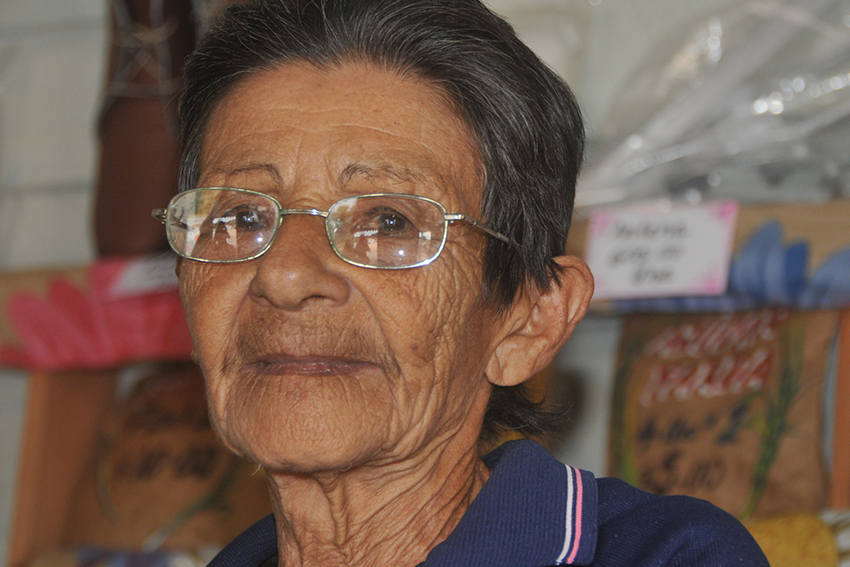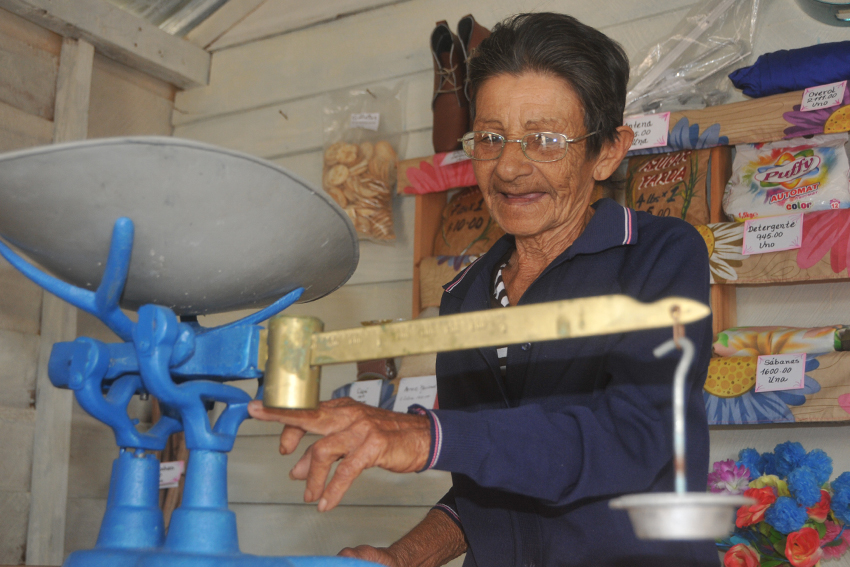
In a quiet place in the village of Kilómetro 17, in the municipality of Amancio, Berta Medero Rojas sits on her terrace and enjoys the warm morning sun that illuminates her face furrowed by time, but vibrant with life.
At 74, she is a pillar of her community, a woman whose experiences are intertwined with the winery where she worked for three decades. She has retired, but she is still around, advising, foreseeing, training, and demonstrating a deep love for her neighborhood. We met her last January at the reopening of that commercial establishment. She was there like a child with a new toy.
“Thirty years -she says firmly as if each word carried with it the weight of countless memories. I retired here. Thirty years. Yes”. Her voice echoes like an echo of bygone eras, full of events that seem to catch a breath in the air.
“I was young when I started. I had no children then, but then came my three children. Every client was a friend; every sale was a shared story. I loved my work. I met everyone here. There were three of us in all: the manager and two clerks,” she says, and his tone hints at the excitement of those days.
“Times have changed quite a bit. Before, at those counters, there was everything, condensed milk, beans? We not only sold products, we also offered a space where people could meet, chat, and share their lives,” she recalls.
She recalls the old men sitting on the chairs at the entrance, telling stories of past events, while the children played nearby. “And at village festivals, everyone would come to buy sweets and refreshments to celebrate. The food store was the heart of those festivities; neighbors would join together to decorate the place and prepare what was needed. Those are days that I keep in my heart."
 Berta, who saw those breezes of prosperity as well as the stale trace of scarcity, defends above any circumstance the collective unity, fellowship, empathy, and thinking of the other. “In the most difficult times, with sales declining, we always found a way to get by. The community supported each other, and that was what kept us strong.” That's how he wants it to continue to be, even though nowadays the “errands” come in small packages, and the country's situation imposes the greatest challenges to daily life.
Berta, who saw those breezes of prosperity as well as the stale trace of scarcity, defends above any circumstance the collective unity, fellowship, empathy, and thinking of the other. “In the most difficult times, with sales declining, we always found a way to get by. The community supported each other, and that was what kept us strong.” That's how he wants it to continue to be, even though nowadays the “errands” come in small packages, and the country's situation imposes the greatest challenges to daily life.
She adds arguments to the proposal when she thinks of the many times that the villagers came together to help those who needed it most, organizing meals and collecting donations. And this store is part of those initiatives.
“Today the store is rebuilt; it looked good, now, it looks beautiful. A dream fulfilled. The first time I saw the new shelves, I felt like I was seeing an old friend renovated,” he says with a smile.
“What message would you leave for the neighbors?" I ask her. “That they take care of it,” she answers without hesitation and starts talking about other wishes and promises of eternity.
“I want the young people of today to understand what the bodega has represented for this neighborhood. It is more than a store; it is a symbol of our history and our commitment to the community.
“I have never moved away from here. As the Mexican song says, 'in the same town and with the same people'." Everywhere I walk, I find a friendly face and a memory to share. This town is my home, and it always will be,” says the woman -with conviction- who insists on valuing the essences that matter: union, friendship, and love for her homeland.





